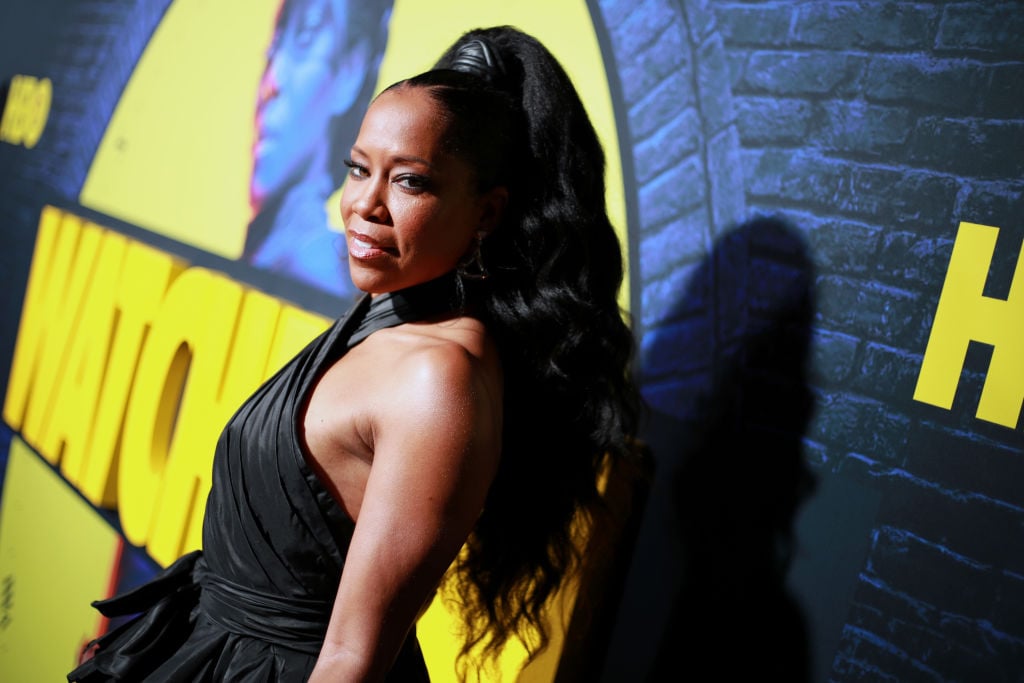Since she jumped into the world of show business in the ’80s, Regina King has been a force to be reckoned with. However, she isn’t only known as an actress. She’s a director, mental health advocate and role model in resilience, too.
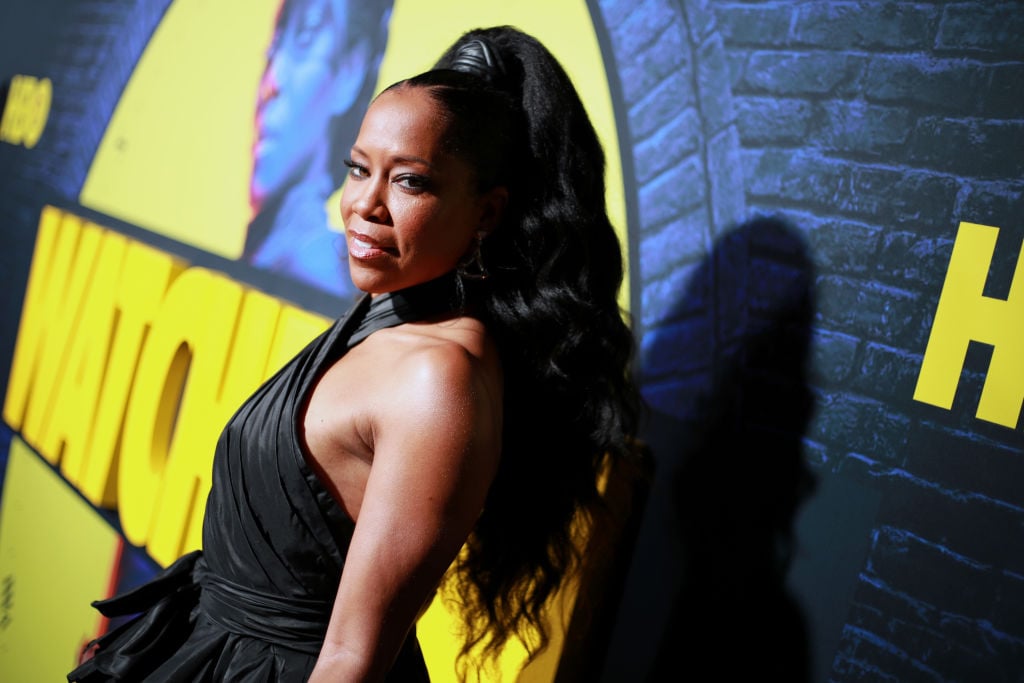
Regina Rene King was born in Los Angeles, California, on January 15, 1971. It didn’t take long for King, the daughter of an electrician father and a special education teacher mother, to be bitten by the acting bug.
King started in dance classes, training in ballet and jazz and showing a natural gift for performing. But when she tagged along to one of the acting classes her younger sister was taking, King was inspired to take on the craft, too. She began studying under acting coach Betty Bridges, who quickly recognized King’s talent and urged her to begin auditioning.
“Acting felt like an extension of dancing. Both are about telling a story and expressing emotions,” she said.
Where it all began: Early success on ‘227’
At the age of 14, King landed her first major role: Brenda Jenkins on the NBC sitcom “227.” For five seasons, King acted alongside Marla Gibbs, Hal Williams, Alaina Reed Hall and Jackée Harry. Though she’d been taking acting classes before landing the role, King calls her time on “227” her “acting school,” as working with seasoned performers taught her so much about professionalism and bringing characters to life. Marla Gibbs was especially impactful, King told “Acting Magazine.”
“Marla was like a mentor to me. She taught me the importance of authenticity and staying grounded.”
King’s portrayal of Brenda Jenkins was generally well-received, so much so that it earned her two Young Artist Award nominations: one for Best Young Actress Starring in a New Television Series in 1986 and another in 1987 for Exceptional Performance by a Young Actress in a Long Running Series Comedy or Drama.
The turning point: King’s transition from sitcom star to serious actress
By the time “227” ended in 1990, King had built a reputation as a comedic performer. However, the California native didn’t want to be put into a box. She wanted to prove she could be a serious adult actress, not just a child star whose 15 minutes of fame ended with “227.” Fortunately, her casting as Shalika in the late John Singleton’s “Boyz n the Hood” in 1991 would do just that.
The coming-of-age crime drama, King’s film debut, was a learning experience for everyone. It taught King more about the power of storytelling in film, and it taught the world that King had range.
King went on to star in two other John Singleton dramas, “Poetic Justice” in 1993 and “Higher Learning” in 1995. The same year, King returned to her comedy roots with a role in “Friday” alongside Ice Cube and Chris Tucker.
King’s continued rise to fame: ‘Jerry Maguire,’ ‘Enemy of the State,’ ‘Ray’ and other roles
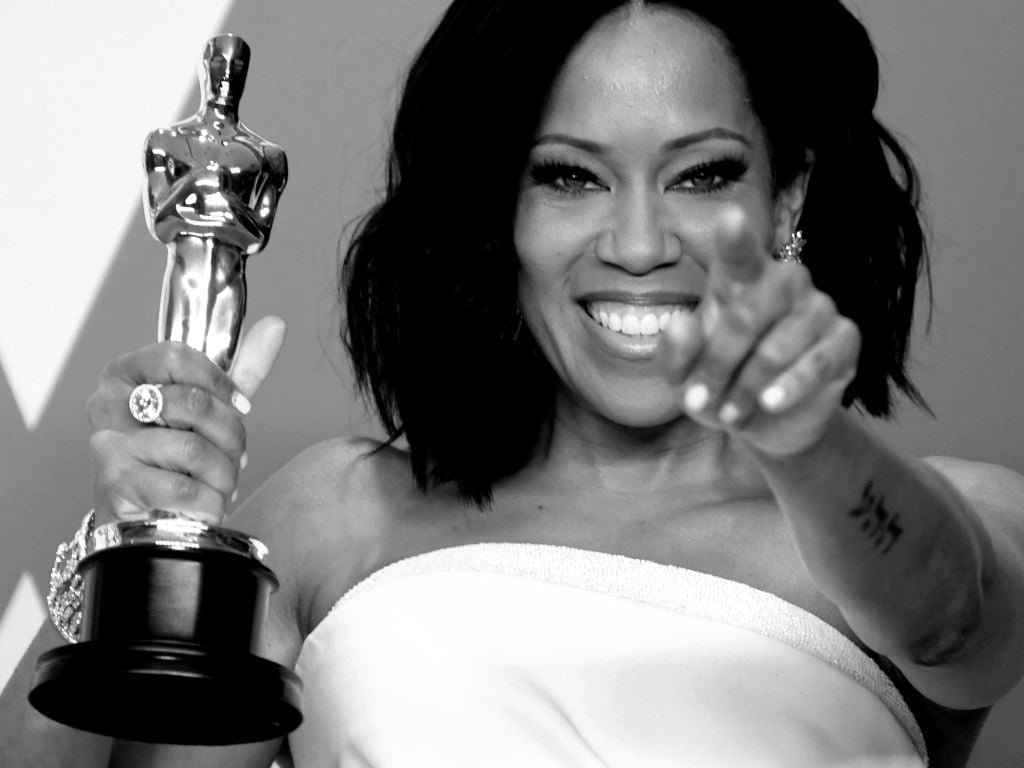
By the mid-1990s, King was no longer just a “227” alum. She was a respected performer.
King’s portrayal of Marcee, wife of Cuba Gooding, Jr.’s character in “Jerry Maguire,” continued opening doors for King. Her performance as a supporting actress in the popular film put more eyes on her and her abilities, leading to King being cast in more prominent roles.
One of these was “Enemy of the State,” a political action thriller directed by Tony Scott and starring Will Smith. King’s performance as Carla, wife of Will Smith’s character, earned her an Outstanding Actress in a Motion Picture nomination at the 1999 National Association for the Advancement of Colored People (NAACP) Image Awards.
King had a string of roles in films and television shows throughout the second half of the 1990s and into the early 2000s, including a guest appearance on “Living Single” and supporting roles in “How Stella Got Her Groove Back” in 1998 and “Ray” in 2004. She even briefly returned to her sitcom roots as a main character in “Leap of Faith” in 2002. The show had King acting alongside names like Sarah Paulson, Ken Marino and Lisa Edelstein. However, it was axed after one season.
What movie did Regina King win an Oscar for?
By the 2010s, King’s career had reached new heights, and her nomination-worthy performances in several films put her name among the world’s most respected and famous Black actresses.
One of King’s most noteworthy film performances came in 2018 with the release of “If Beale Street Could Talk.” The Barry Jenkins film, based on James Baldwin’s 1974 novel of the same name, featured King as Sharon Rivers, one of the protagonists’ mothers.
“Beale Street” was a defining moment in King’s career. Critics called her performance powerful, and it ultimately gave the longtime actress her first Academy Award nomination and win. At the 2019 ceremony, the Oscar presenter handed King the award for Best Supporting Actress. King noted her award as a victory not only for her but for the women who came before and will come after her. In a backstage post-award acceptance interview, she said,
“So many women have paved the way. I walk in their light and I am creating my own light, and there will be young women who walk in that light.”
Small screen, big impact: Regina King’s award-winning TV roles
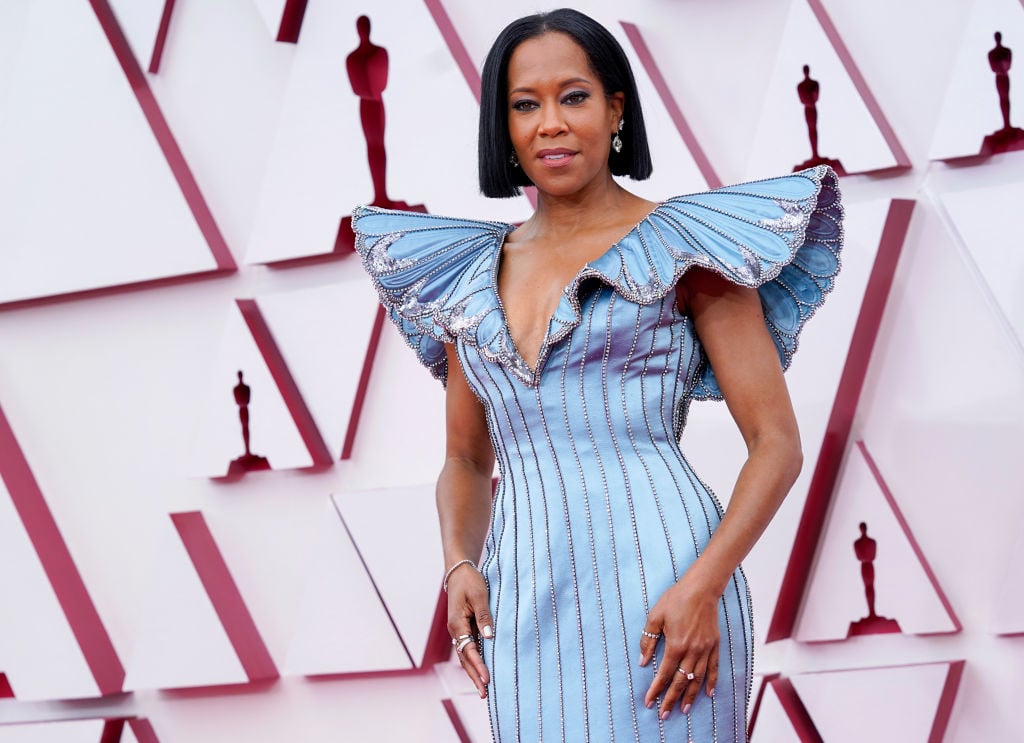
Given that it was a television role that launched her acting career, it makes sense that TV appearances continued to show up on King’s résumé. A few of her small screen credits include:
- “The Boondocks” – the voices of Huey and Riley Freeman
- “24” – Sandra Palmer
- “Southland” – Detective Lydia Adams
- “Shameless” – Gail Johnson
- “The Big Bang Theory” – Janine Davis
- “Seven Seconds” – Latrice Butler
Winning gold: ‘American Crime’ and ‘Watchmen’
King’s list of television appearances is long, filled with noteworthy performances. However, three of her most significant and memorable roles are in “American Crime” and “Watchmen.”
“American Crime” premiered in 2015 and ran for three seasons. Since the crime drama was an anthology series, King played a different character each season: Aliyah Shadeed in season one, Terri LaCroix in season two and Kimara Walters in season three.
King’s work on “American Crime” was widely well-received, and Hollywood’s award season confirmed it. Her performances brought King her first and second Primetime Emmy Awards in 2015 and 2016, both for Outstanding Supporting Actress in a Limited Series or Movie. She was also nominated for a Best Supporting Actress from a Television Golden Globe and won Outstanding Supporting Actress in a Drama Series at the NAACP Image Awards in 2016.
“Watchmen” was another impactful project for King. King was the star of the miniseries, portraying Angela Abar, a bakery owner by day and hooded avenger by night. King’s performance earned her a fourth Emmy — her third was for “Seven Seconds” in 2018 — this time for Outstanding Lead Actress in a Limited Series or Movie.
Impact of ‘Watchmen’
“Watchmen” and “American Crime” were no doubt impactful for King’s life — after all, they led to her winning several major critical awards. However, it’s worth noting that these series impacted audiences, too.
By portraying one as a superhero, King’s “Watchmen” role provided Black women with representation they aren’t often given. A review of the series called King’s character a superhero fit for the complex present times, as she fights against racism and domestic terrorism against Black people and other minorities in a divided society.
King echoed that sentiment in a 2019 interview, noting that the series shone a light on the racial injustice and hate that often go unspoken about in America today. It also educated viewers on incidents they may not have learned about in school — the 1921 Tulsa massacre, a racist attack on Black Wall Street that the series opens with, for instance.
“The white supremacy has always been there in the country. In the last couple of years, those people have become more emboldened, so here we are: masks off,” she said.
Impact of ‘American Crime’
“American Crime” was equally impactful for similar reasons. The provocative anthology series differed from other programming ABC aired at the time, as it created conversations about race and class in America. In an interview with Assignment X, King said the subject matter shown on “American Crime” is necessary for viewers, adding that it was amazing to be a part of it because it was honest.
“Race is such a huge part of America’s fabric, and it’s something that exists that is not talked about probably as much as it should be to heal a lot of pain for all races. It needs to be a discussion,” she said.
A vision behind the camera: Regina King, the director
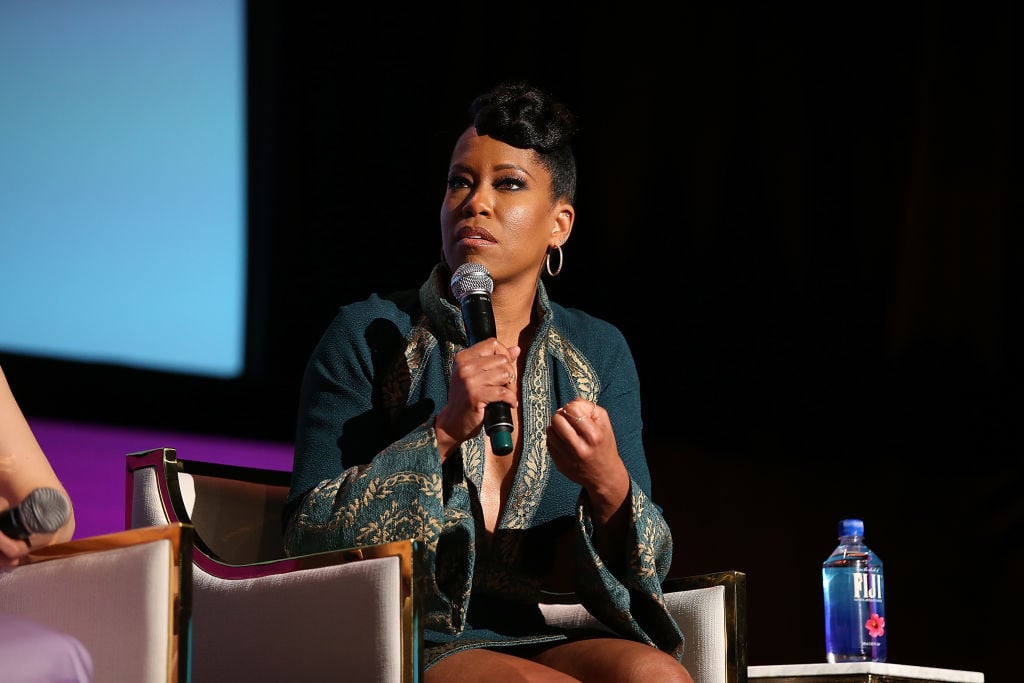
Throughout her career, King has not only made a name for herself for her work in front of the camera, but behind it, too. Besides being a talented, convincing actress, King has also branched out into directing.
Her directorial debut was the 2020 drama “One Night in Miami,” which explores an imagined meeting between Malcolm X, Muhammad Ali, Jim Brown and Sam Cooke. “One Night in Miami” received critical acclaim, and audiences called it proof of King’s ability to tackle delicate subject matter and tell stories skillfully.
In a CBS News interview, King said taking on a project centered around these iconic Black men was daunting — “scary in a good way,” she stated — as she didn’t want to fail their legacies. Her admiration of their work and stories, plus the connection she felt to the characters, contributed to her success in directing the project.
“I felt like I knew all of these men,” King said. “I saw my son in these conversations. I saw my father in these conversations. They love, they’re vulnerable, they’re strong.”
Besides “Miami,” King’s directing credits include several episodes of “A Man in Full,” “Scandal,” “Shameless,” “This is Us” and more.
Grace through grief: Personal tragedy and public strength
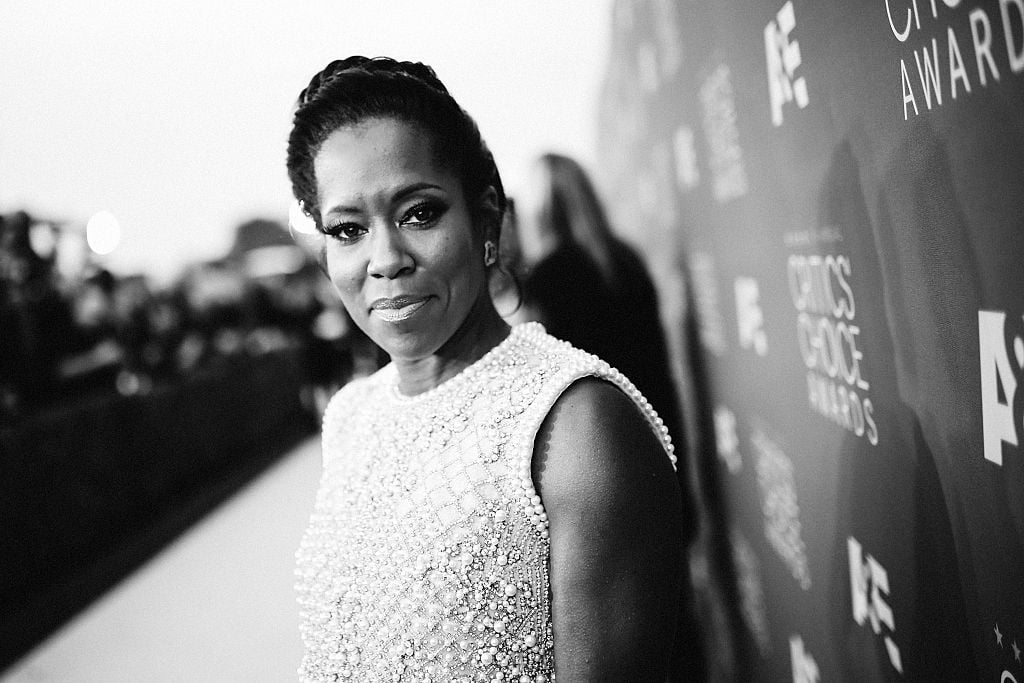
In January 2022, King took a step back from her busy career. Not to recover from burnout or consider her next steps, but to grieve — Regina King’s son, her only child, Ian Alexander, Jr. tragically died by suicide at just 26 years old.
Regina King’s son’s death affected her so deeply that she didn’t publicly address it until two years after his passing. In 2024, King bravely spoke to “Good Morning America’s” Robin Roberts about what her grief process has looked like. In doing this interview, King created conversations not only about the complexities of grief and loss — she noted that “grief is love that has no place to go” — but about the importance of mental health awareness, too.
“When it comes to depression, people expect it to look a certain way and they expect it to look heavy. And people expect that…to have to experience this and not be able to have the time to just sit with Ian’s choice, which I respect and understand, you know, that he didn’t wanna be here anymore, that’s a hard thing for other people to receive because they did not live our experience, did not live Ian’s journey,” King told Robin Roberts.
Regina King returns: Recent work and what’s ahead
King has since returned to work, and the Los Angeles native’s upcoming projects show off both her acting and directing chops. “Caught Stealing,” a crime thriller starring King, Austin Butler and Zoe Kravitz, is set to premiere in late August 2025. Fantasy film “Children of Blood and Bone,” which has King acting alongside names like Idris Elba, Amandla Stenberg and Viola Davis, hits screens in 2027.
On the directorial side of things, King is set to direct and produce “Bitter Root,” a Harlem Renaissance horror story based on the Image Comics series. Given the success of “One Night in Miami,” expectations of King are high. The film is expected to be a standout that’s entertaining and meaningful.
A legacy of power, poise and purpose
Since coming onto the acting scene in the 1980s, King has been a talent to watch, and now, she reigns alongside the other great, famous Black actresses and directors in the game. With titles like Oscar winner and Annual Celebration of Black Cinema and Television awards nominee on her résumé, it’s easy to see that King excels at her craft.
Her ability to convincingly tell stories as an actress and director, her resilience after great loss and her willingness to speak on difficult subjects like grief and mental health further reinforce her reputation as a powerhouse and add to the legacy she’s building for herself.


